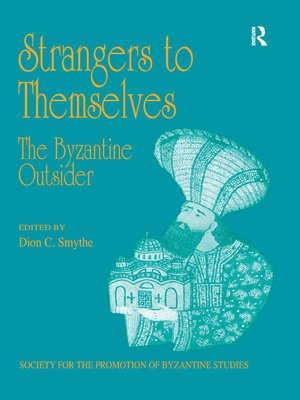Strangers to Themselves
ebook ∣ The Byzantine Outsider: Papers from the Thirty-Second Spring Symposium of Byzantine Studies, University of Sussex, Brighton, March 1998 · Publications of the Society for the Promotion of Byzantine Studies
By Dion C. Smythe

Sign up to save your library
With an OverDrive account, you can save your favorite libraries for at-a-glance information about availability. Find out more about OverDrive accounts.
Find this title in Libby, the library reading app by OverDrive.



Search for a digital library with this title
Title found at these libraries:
| Library Name | Distance |
|---|---|
| Loading... |
March 1998 saw Byzantinists gathering together at the University of Sussex in Brighton, for the annual symposium held by the Society for the Promotion of Byzantine Studies. Their aim was to consider the question of the 'Byzantine outsider'. Some categories of outsiders appear clear and simple: those marked out by class, race, sex, religion. But these categories are not universals. Today, historians of all periods are examining the ways in which we analyse the divisions in our societies, which can determine how we look at societies in the past. There is no consensus on who forms the 'outsider class' in modern society; it should come as no surprise that there was no consensus in Byzantium as to who the outsiders were, what they had done to deserve that status, and what the result of their attaining it should have been. The papers in this collection, drawn from the large number presented at the XXXII Spring Symposium, continue the debate about the idea of the 'Byzantine outsider'. The scholars within - theologians, historians, literary critics and art historians - present differing approaches to different aspects of the problem. The volume does not aim to have the 'last word', but rather to provoke debate and to open the field. Any examination of society that uses the concept of the outsider has implicitly within it a concept of the 'insider'. By looking at those on the margins it becomes easier to see who were - or at least thought they were - on the inside.







